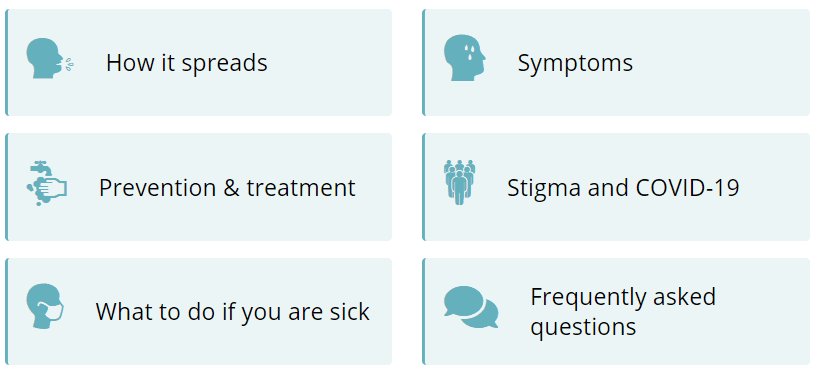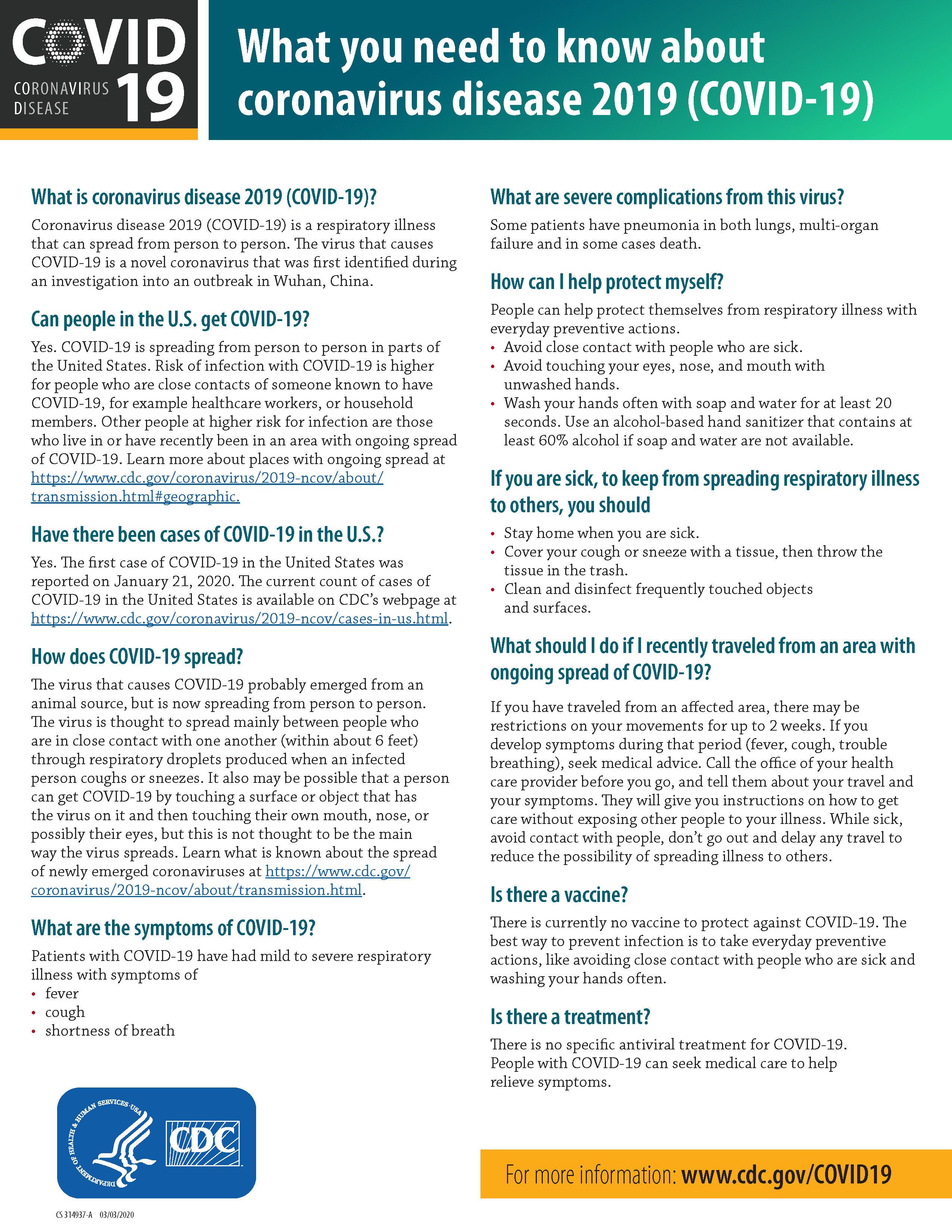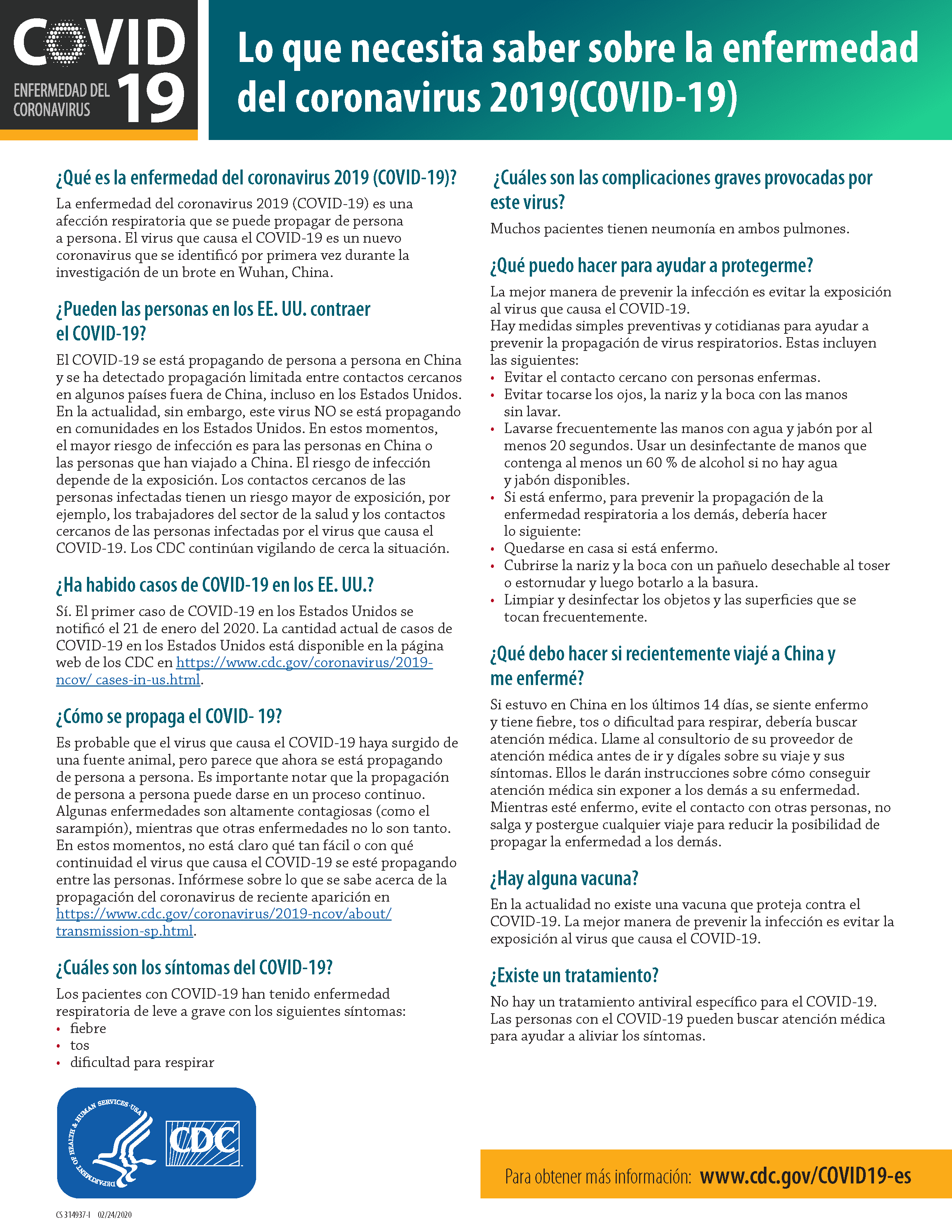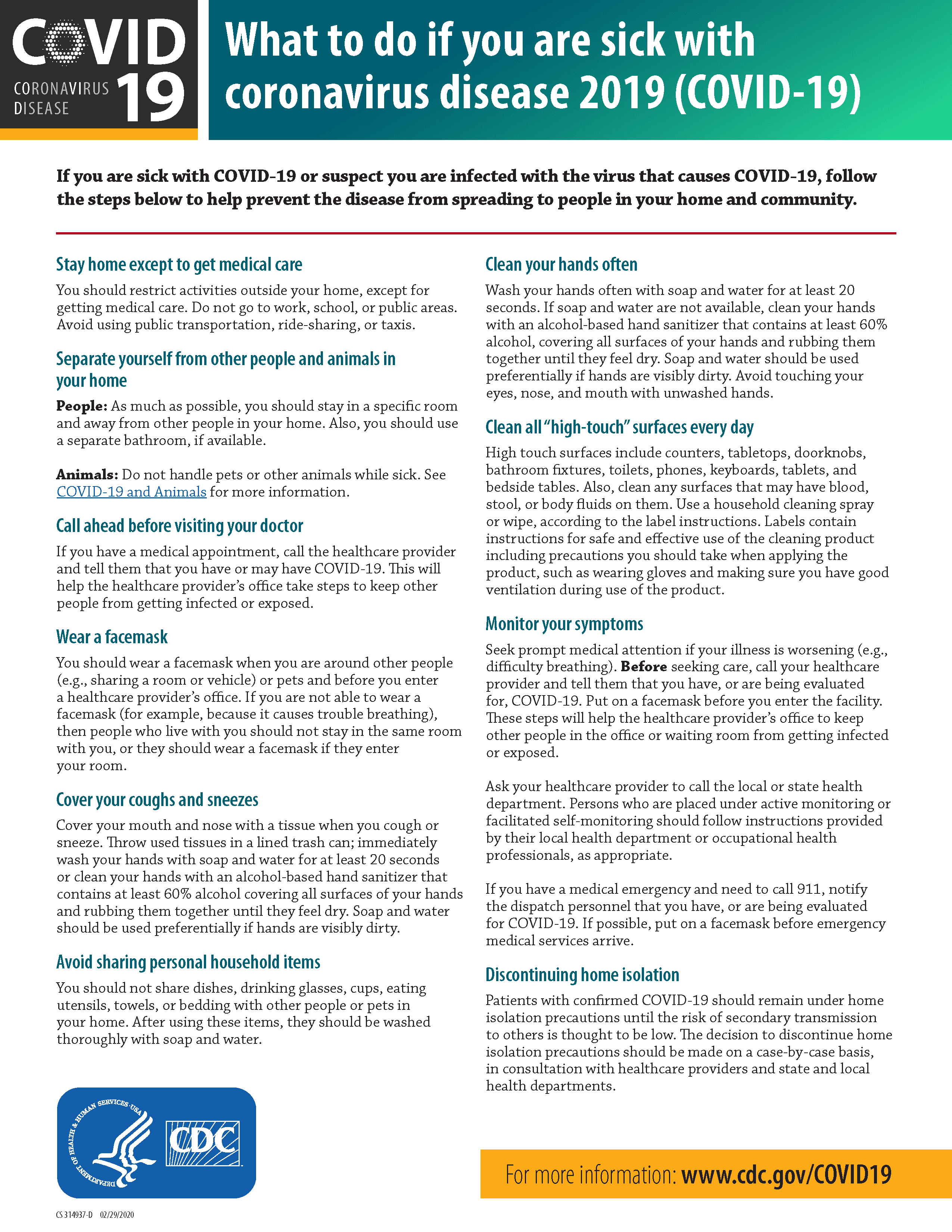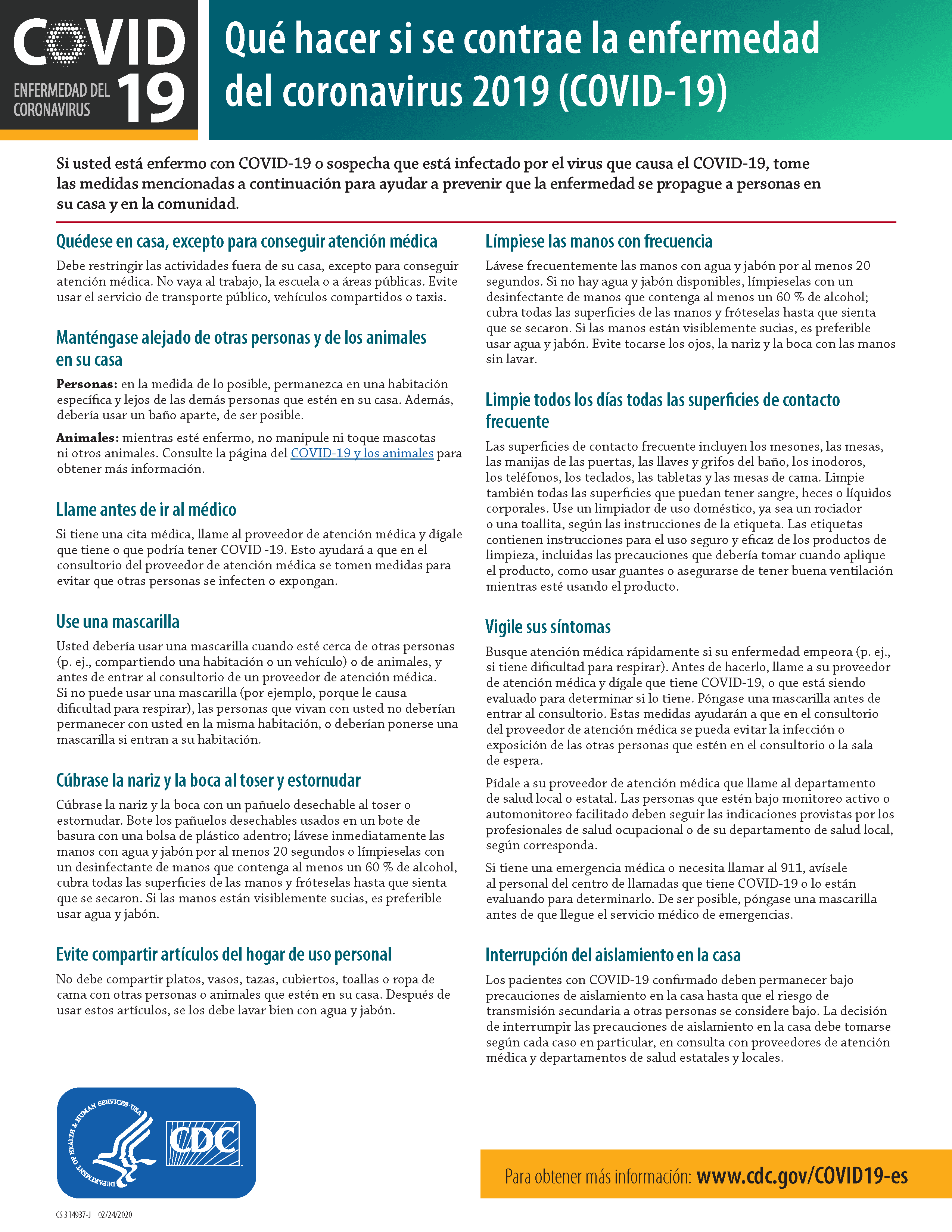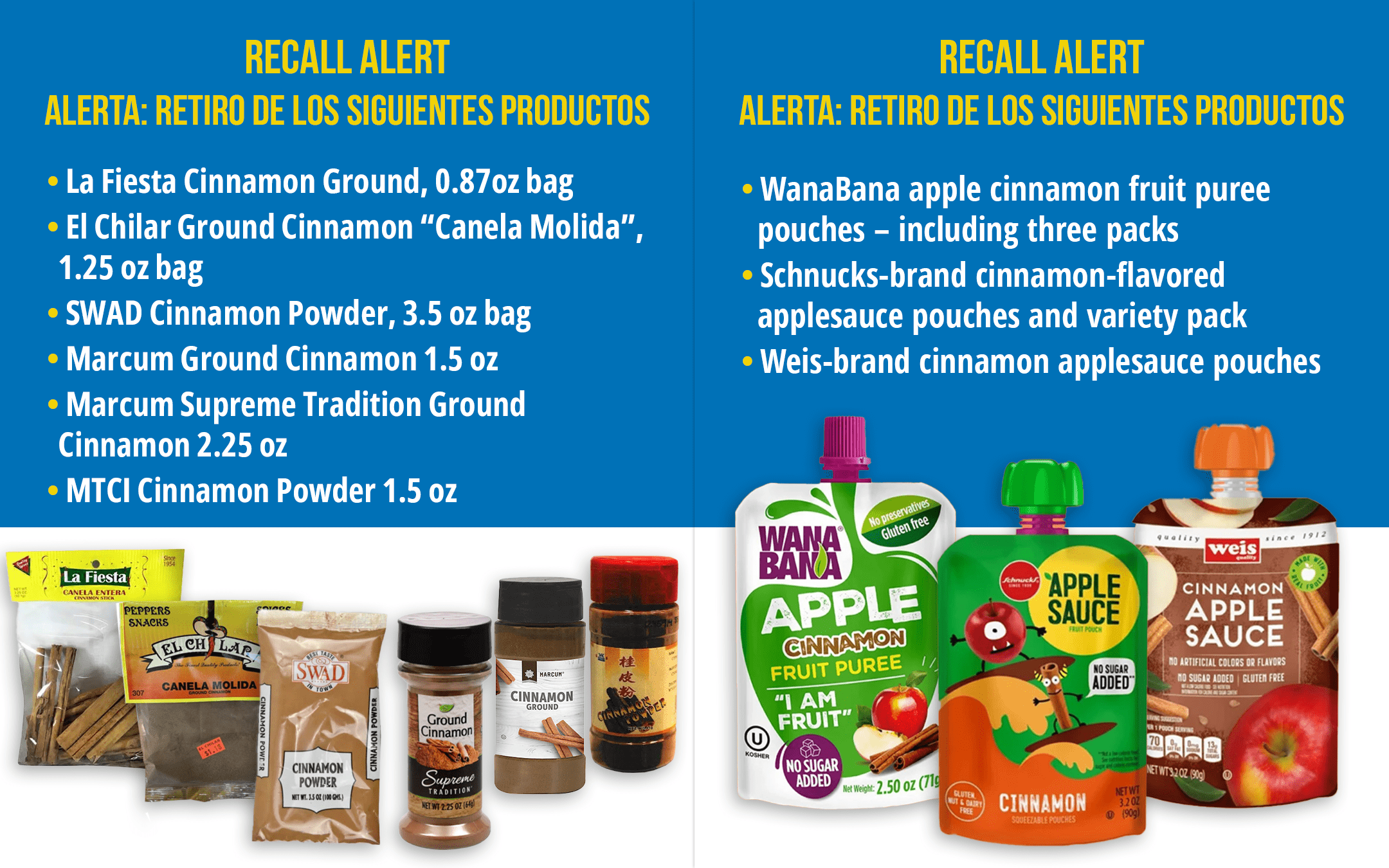What is Coronavirus?
Corona is a large group of viruses which can infect both humans and animals with cold-related diseases. The intensity of the infection ranges from common colds to acute respiratory syndrome.
The new strain of Coronavirus, called 2019-nCoV, is a novel virus to humans. There is limited information related to 2019-nCoV, including symptoms and means of treatment.
The CDC, in cooperation with WHO and international experts, are working to combat the virus.
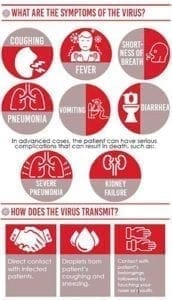 Is there Treatment or Vaccine for Coronavirus?
Is there Treatment or Vaccine for Coronavirus?
Most people with illnesses due to common coronavirus infections recover on their own; there are no specific treatments for coronavirus infections. For patients who are more severely ill, hospitals can provide supportive care. We are continuing to learn more about this novel coronavirus and treatment may change over time.
What are the Symptoms of the Coronavirus?
Typically, human coronaviruses cause mild-to-moderate respiratory illness. Symptoms are very similar to the flu, including:
- Coughing
- Fever
- Shortness of breath
- Pneumonia
- Vomiting
- Diarrhea
In advanced cases, the patient can have serious complications, such as:
- Severe Pneumonia
- Kidney Failure
How is the Coronavirus Transmitted?
- Direct contact with an infected person
- Droplets from an infected persons coughing and/or sneezing
- Contact with an infected persons belongings followed by touching your nose or mouth
How to Protect Yourself from & limit the spread of the Coronavirus
The California Department of Public Health recommends the following steps to prevent the spread of all respiratory viruses:
- Washing hands with soap and water.
- Avoiding touching eyes, nose or mouth with unwashed hands.
- Avoiding a cough or sneeze.
- Avoiding close contact with people who are sick are all ways to reduce the risk of infection with a number of different viruses.
- Staying away from work, school or other people if you become sick with respiratory symptoms like fever and cough.
- Wash and prepare food carefully
- Exercise and proper sleep will bolster the immune system
Do you have a fever or symptoms of a respiratory illness?
Call ahead to your healthcare provider if you develop a fever and symptoms of respiratory illness, such as cough or difficulty breathing, and have been in close contact with a person known to have COVID-19 or if you live in or have recently traveled to an area with ongoing spread. Tell your healthcare provider about your recent travel or contact. Your healthcare provider will work with your state’s public health department and CDC to determine if you need to be tested for COVID-19. Read more from the CDC: What to do if you suspect you are infected by the Coronavirus.
READ MORE – California Department of Public Health
CDC About Coronavirus Disease 2019 (COVID-19)
There is an ongoing investigation to determine more about this outbreak. This is a rapidly evolving situation and information will be updated as it becomes available.

